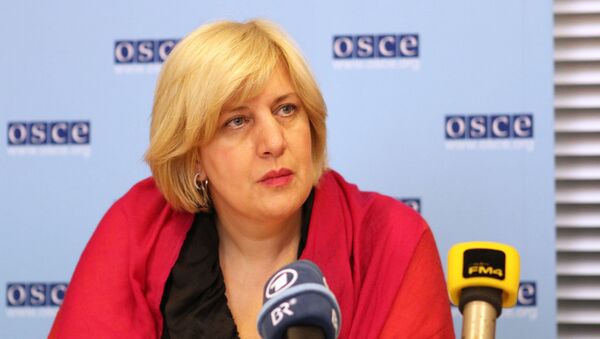VIENNA, October 7 (RIA Novosti) - The Organization for Security and Co-operation in Europe (OSCE) has recommended its member states avoid limiting the freedom of the media in anti-extremism laws that they may adopt, a communique by the OSCE Representative on Freedom of the Media issued Tuesday reads.
"Anti-extremism laws only should restrict activities which necessarily and directly imply the use of violence. Limits to free expression and free media imposed by anti-extremism laws should respect OSCE commitments and international law," Dunja Mijatoviс, OSCE Representative on Freedom of the Media, said in the communique.
Mijatoviс noted that "mere expression of controversial and provocative political views must therefore be respected and protected as part of pluralistic and democratic debates."
"Anti-extremism laws can be particularly dangerous for free media when they fail to clearly define the notion of extremism, and use a heterogeneous, wide or open list of offences that are generally grouped as extremist," Mijatoviс emphasized.
According to the OSCE representative, such offences include the public explanation and justification of terrorism, agitation of social enmity, propaganda of religious superiority, libelous accusations of extremism against public officials, provision of information services to extremists, and hooliganism motivated by hatred.
Mijatoviс also stressed that prosecutors of police officers should not impose their vision and define extremist acts, as it may have a negative effect on journalists "reporting on matters of public interests".



